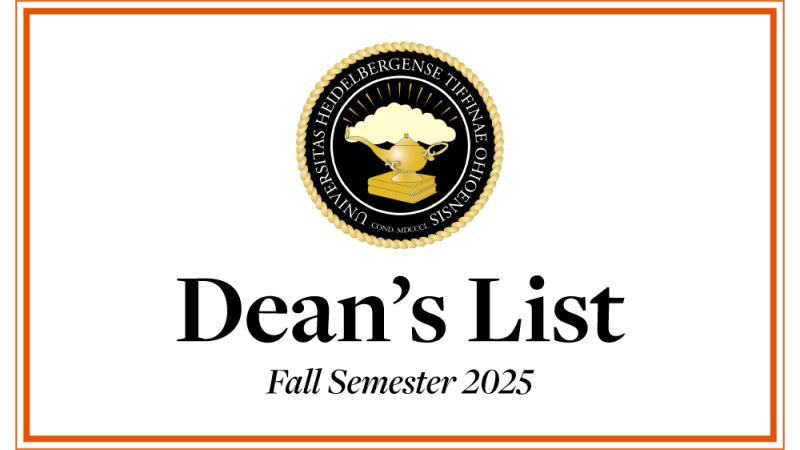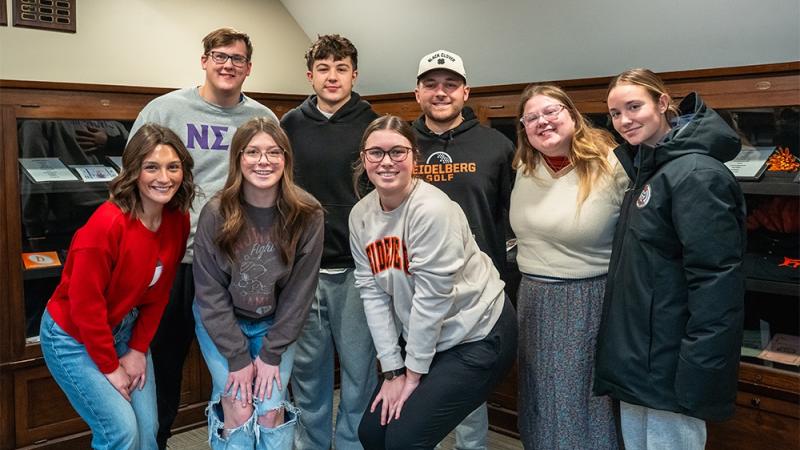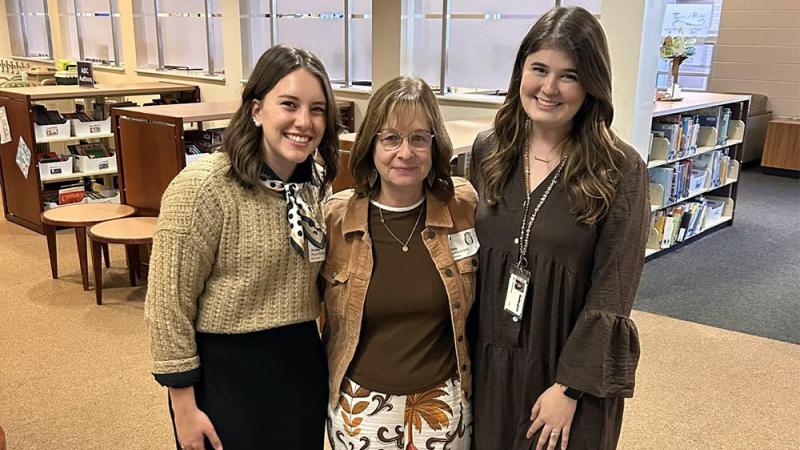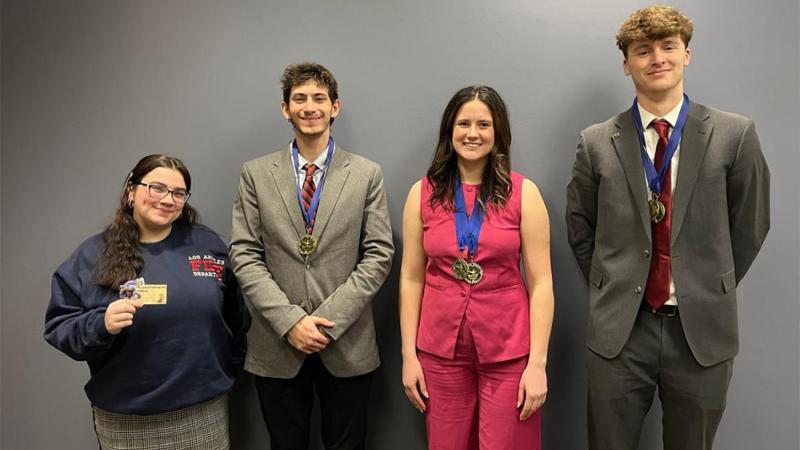Honors students 'plagued' with knowledge
The Life of the Mind Honors Program here at Heidelberg requires students to take four seminars: the Artist, the Scholar, the Citizen and the Scientist. These three ideas serve as overarching goals for the program curriculum, but the topics change every semester.
The Scientist honors seminar can be many things. It can address the differences between man and machine; it can explain the possible reality of science fiction; it can dive into the world of anatomy in athletics. This semester, the scientist seminar is “Plagues of Man: How Infectious Disease Has Shaped Human History.” The course covers the science behind historic and impactful plagues and illnesses, with special guests to cover how those plagues impacted history. Dr. Justin Pruneski is sure to address all sides of illnesses throughout history, so that students can understand when the pattern begins to repeat. “Some students get a little frustrated – they learn that we’ve done all this before, and wonder why we haven’t done it better this time,” Justin shared. Although frustrating, that new understanding is what the class is all about.
Justin has been on Heidelberg’s faculty for the past 10 years as a professor of biological sciences. He is the creator and professor of the “Plagues” honors seminar. He created the course in 2016, in response to his interests in microbiology and history. He began the class again in the fall of 2020, and “Plagues of Man” is now in the regular rotation of honors seminars. In the microbiology classroom, Justin is showing young scientists the differences among microbes – but in the honors classroom, He teaches all backgrounds the similarities among human response to those microbes.
Unlike his labs or lectures, Justin made the “Plagues” seminar very reading- and discussion-based, with the heavy emphasis on individualized research for which the Life of the Mind honors program is known. “There is no predetermined curriculum,” Justin explained, “so we talk to each other – and address their questions, even if they aren’t exactly related to the topic of the day.”
The population of honors students is a mixed bag, as far as majors go. “The biochem students are quick to help explain topics that their friends in business or history may not understand right away,” Justin said. When they talk about the history or cultural impact of these diseases, Justin will happily learn or ask for help from other experts. “It’s all about providing other perspectives and exposing students to new resources.”
Dr. Courtney DeMayo Pugno was a recent guest speaker in the Scientist seminar, in order to share the historical impact of Black Death. With her Ph.D. in Medieval history, she shared the social impact of the plague. Courtney explained the way the plague traveled and the political unrest that followed. She likened the experience to the talks of coronavirus in January of 2020, where the illness was nothing more than a short news report about the other side of the world – but those in the 14th century had only humoral theories of medicine and miasmatic transmission theory to maintain their wellness.
The sudden sense of danger transformed the culture of Europe entirely, bringing skeletons and phantoms into the art, religious extremists traveling across the continent, and religious persecution that darkened Europe for over a century. With her quick-witted comparisons and instant connection to students, Courtney brought new life to the Black Death.
Dr. Barry Devine, an expert on Irish literature and manuscript studies, visited the class in mid-October. He shared his research on the lasting impact of the Irish potato blight, which is still referenced in popular Irish culture today. Today, understandings of the blight are nuanced – the economic exploitation of the Irish people and the forced conversation at the time had a massive impact on the literature and music we still hear today.
Barry reflected on his own time studying abroad in Dublin, and the sculptures that he frequently came across during that time of his life. Monuments to the cultural legacy were described and showcased with the gentle but passionate cultural awareness that students have come to expect from him.
When there aren’t guest lecturers, the class is structured with reading assignments and discussion days. Students are required to do their own outside research, which Justin calls a “Readers Choice” assignment. Students choose from a list of books with varying perspectives on the variety of plagues throughout human history. This way, Justin brings the scientific method and microbial expertise, and students bring historical and societal context to the conversation.
At the end of the day, Justin and his students understand the seriousness of the topic throughout history – and that they’ve already been “doomed to repeat it” once.
"I want them to know and understand how disease has impacted history. I want them to think about the fact that these things will come up again – and I want them to have the lessons of the past, and the present understanding of them, to prepare for future plagues or threats."
Through interdisciplinary study, Professor Pruneski is preparing his students for the future, and helping them understand how the world today came to be.




